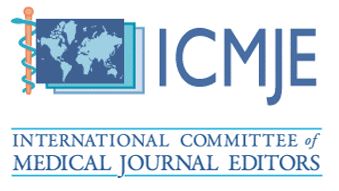Aim & Scope
The aim of SVOA Medical Research journal is to disseminate high-quality scientific research findings and advancements in the field of medicine. It strives to provide a platform for researchers, clinicians, and healthcare professionals to share their innovative research, critical analyses, and insightful perspectives. The journal aims to foster collaboration, encourage evidence-based practice, and contribute to the overall improvement of healthcare outcomes.
The journal covers a broad spectrum of topics within the field of medicine, including but not limited to:
1. General Medical Sciences:
Clinical Research: Studies involving patient-centred research, clinical trials, and case reports that address diagnosis, treatment, and prevention of diseases.
Epidemiology: Research on the distribution and determinants of health and diseases in populations, including public health and preventive medicine.
Medical Education: Innovations and studies in medical training, curriculum development, and continuing education for healthcare professionals.
2. Specialized Medical Sciences:
Cardiology: Advances in the diagnosis, treatment, and management of cardiovascular diseases, including interventional cardiology, electrophysiology, heart failure, and cardiovascular surgery.
Neurology: Research on neurological disorders, neurodegeneration, advancements in neurotherapeutics, stroke management, epilepsy, and neuromuscular diseases.
Oncology: Studies on cancer biology, novel treatments, clinical trials, patient care strategies in oncology, molecular oncology, radiotherapy, and palliative care.
Paediatrics: Research on child and adolescent health, including pediatric diseases, treatments, preventive care, neonatal medicine, and paediatric surgery.
Orthopaedics: Innovations in the diagnosis, treatment, and rehabilitation of musculoskeletal conditions, including orthopaedic surgery, sports medicine, and trauma care.
Endocrinology: Studies on hormonal disorders, diabetes, advances in endocrinological treatments, thyroid disorders, adrenal diseases, and metabolic bone diseases.
Gastroenterology: Research on gastrointestinal disorders, liver diseases, advancements in gastroenterological procedures, hepatology, and digestive diseases.
Immunology: Studies on the immune system, immunodeficiencies, autoimmune diseases, immunotherapies, transplant immunology, and vaccine development.
Infectious Diseases: Research on the epidemiology, pathogenesis, and treatment of infectious diseases, emerging pathogens, antimicrobial resistance, and infection control.
Dermatology: Advances in the diagnosis and treatment of skin disorders and diseases, dermatopathology, cosmetic dermatology, and dermatologic surgery.
Nephrology: Research on kidney diseases, renal replacement therapies, transplantation, and advancements in nephrological treatments.
Pulmonology: Studies on respiratory diseases, pulmonary function, critical care, asthma, chronic obstructive pulmonary disease (COPD), and lung cancer.
Rheumatology: Research on rheumatic diseases, autoimmune disorders, advancements in rheumatologic treatments, and chronic pain management.
Haematology: Studies on blood disorders, hematologic malignancies, coagulation disorders, and hematopoietic stem cell transplantation.
Ophthalmology: Research on eye diseases, vision disorders, advancements in ophthalmic surgery, and ocular therapeutics.
Otolaryngology: Advances in the diagnosis and treatment of ear, nose, and throat disorders, head and neck surgery, and audiology.
Urology: Research on urinary tract disorders, male reproductive health, urologic oncology, and advancements in urological surgery.
Gynaecology and Obstetrics: Studies on women's health, reproductive medicine, prenatal care, gynaecologic oncology, and advancements in obstetric care.
Psychiatry: Research on mental health disorders, psychiatric treatments, psychopharmacology, and behavioural therapies.
Anaesthesiology: Advances in anaesthesia techniques, pain management, perioperative medicine, and critical care.
Geriatrics: Research on aging, geriatric syndromes, age-related diseases, and elder care.
3. Interdisciplinary and Emerging Fields:
Genomics and Precision Medicine: Research focusing on the genetic basis of diseases and personalized medicine approaches.
Regenerative Medicine and Stem Cell Research: Innovations in tissue engineering, stem cell therapies, and regenerative treatments.
Medical Imaging and Radiology: Advances in imaging technologies, diagnostic radiology, and image-guided interventions.
Pharmacology and Drug Development: Research on new drug discoveries, pharmacodynamics, pharmacokinetics, and clinical pharmacology.
Biotechnology and Medical Devices: Studies on the development and application of new medical technologies and devices.
Emerging Technologies in Medicine: Biomedical engineering, Telemedicine, Artificial intelligence in healthcare.
4. Public Health and Policy:
Global Health: Research addressing health issues that transcend national boundaries, focusing on health equity and international health initiatives.
Health Policy and Management: Studies on healthcare systems, policy development, healthcare management, and health economics.











